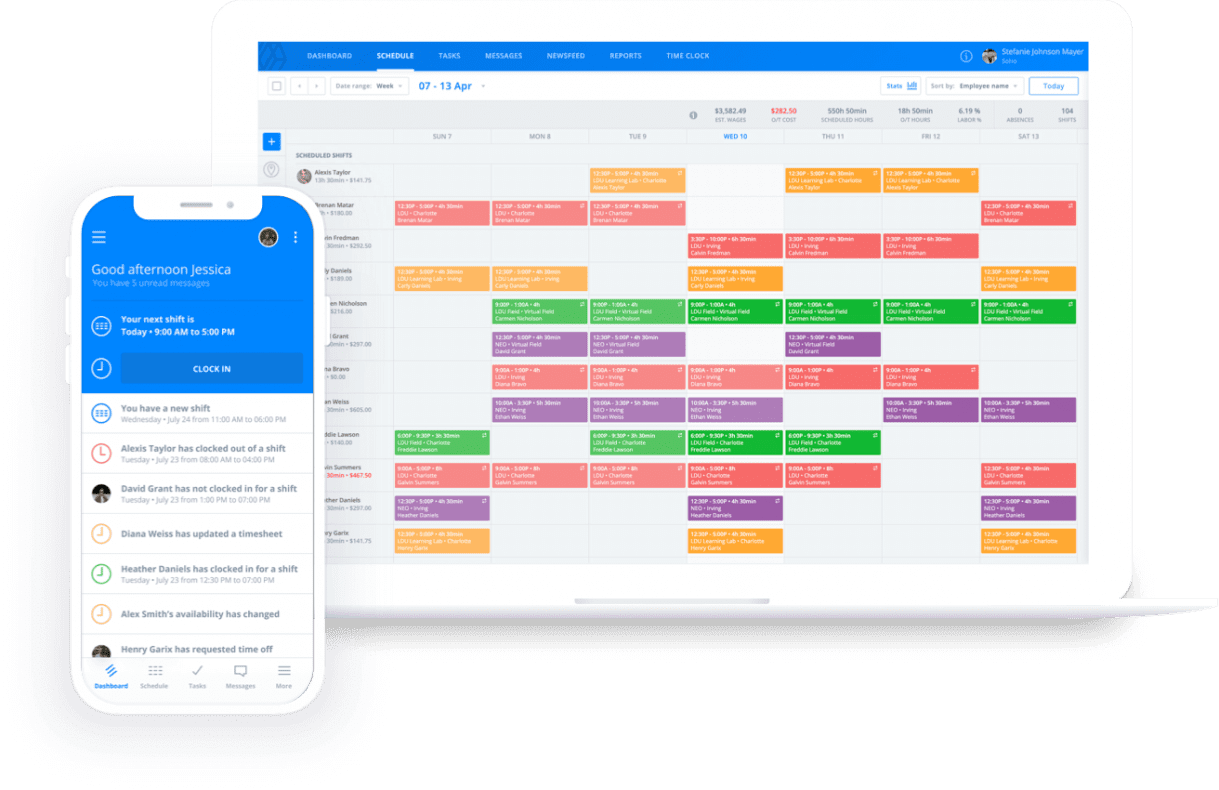Virtual Meeting: 6 Tips For Meeting With Your Team Remotely
With more and more of your employees telecommuting to work these days, the virt...

Conducting a team meeting is one of the best ways to foster a sense of unity in your team and solve problems that relate to your business.
But conducting a successful and productive team meeting can be a daunting and difficult task.
In this article, the management experts at Sling provide tips for planning, leading, and improving the way your team meets together to make your business a success.

Think of the team meeting as an extension of your management style.
You can go the micromanager route and hold meetings once a day whether your team needs them or not, go the laissez-faire route and hold them once a year, or find a middle ground in-between that works for your business.
Whatever style you ascribe to, keep your meetings to a minimum.
An informative team meeting once a month is much better for team morale and productivity than an uninstructive team meeting once a week.
Before you schedule a meeting, ask yourself, “Can I communicate the information effectively via email or instant message?” If the answer is yes, consider that the best option. If the answer is no, schedule a meeting.
Go into every meeting with a clear and concise agenda that outlines variables such as:
When you plan your meeting in advance, you improve the likelihood that everything will go smoothly and the meeting will be a success for all involved.
It’s extremely easy to get off topic during a team meeting and deviate from your initial purpose. To combat this problem, establish clear objectives within your meeting agenda and stick to them.
If the discussion starts to stray, guide everyone back to the main point.
Doing so will help you keep the meeting on track, achieve what you set out to achieve, and leave participants feeling like they actually accomplished something.

One of the keys to a successful and productive team meeting is starting and ending on time. The meeting should always take precedence over anything else.
Even if you’re talking to an influential client or the CEO of the company, for example, explain that you have people waiting for you — many of whom could be doing more important things for the business — and ask if they would mind if you cut the conversation short.
Far from being offended, the client or CEO will respect you more for putting the good of the team (i.e., the business) ahead of other things.
Once you’ve started the meeting on time, stick to your agenda and do your best to end the meeting on time as well.
Attendees may have other important conversations or tasks scheduled after yours. If you run over, the next appointment won’t start on time and it becomes a chain reaction of delays.
It’s very easy to let chitchat hijack your meeting — especially at the beginning. Instead of allowing attendees (or yourself) to talk about the weather or what Dave did last night, dive right in to the first item on your agenda.
Apologize for interrupting if you have to, but explain that you need to get started so that the meeting will end on time.
If team members really want to find out what happened to Dave, they can talk after the meeting or during an upcoming break.
Five minutes of idle talk at the beginning of the meeting is five fewer minutes you have to get things done at the end.
Team meetings are a lot like a group hike in the woods — if you don’t know where you’re going, there’s a very high chance everyone will get lost along the way.
To prevent this from happening, be the leader of the group and keep all attendees moving in the right direction.
You may have to be forceful at times, but that’s part of being a manager, so don’t shy away from this responsibility.
An effective team meeting depends, in large part, on the meeting before it.
After every meeting, review how things went, ask for feedback (via email to one or two participants), and look for ways to improve.
Apply the tips on this list, and don’t be afraid to make significant changes the next time you conduct a meeting.
When you review and improve the way your meetings run, you and your participants will find that you get a lot more accomplished in a short span of time. Team efficiency will improve along with productivity.
That’s good for you, your team, and your business.

A team meeting is one of the best places to promote communication, teamwork, and problem-solving.
But if you only focus on these skills once or twice a week (i.e., in your team meeting), you miss out on a huge training opportunity.
Instead, encourage these traits all week long — and without interrupting everyone’s workday — by providing your team with open and easy lines of communication and an effective schedule that maximizes everyone’s strengths.
The Sling software suite can help.
Features include:
Add to that Sling’s onboard artificial intelligence and you’ve got an extremely beneficial and flexible set of tools that will help your team improve the way they work, communicate, and interact with one another.
For more free resources to help you manage your business better, organize and schedule your team, and track and calculate labor costs, visit GetSling.com today.
See Here For Last Updated Dates: Link
This content is for informational purposes and is not intended as legal, tax, HR, or any other professional advice. Please contact an attorney or other professional for specific advice.
Schedule faster, communicate better, get things done.